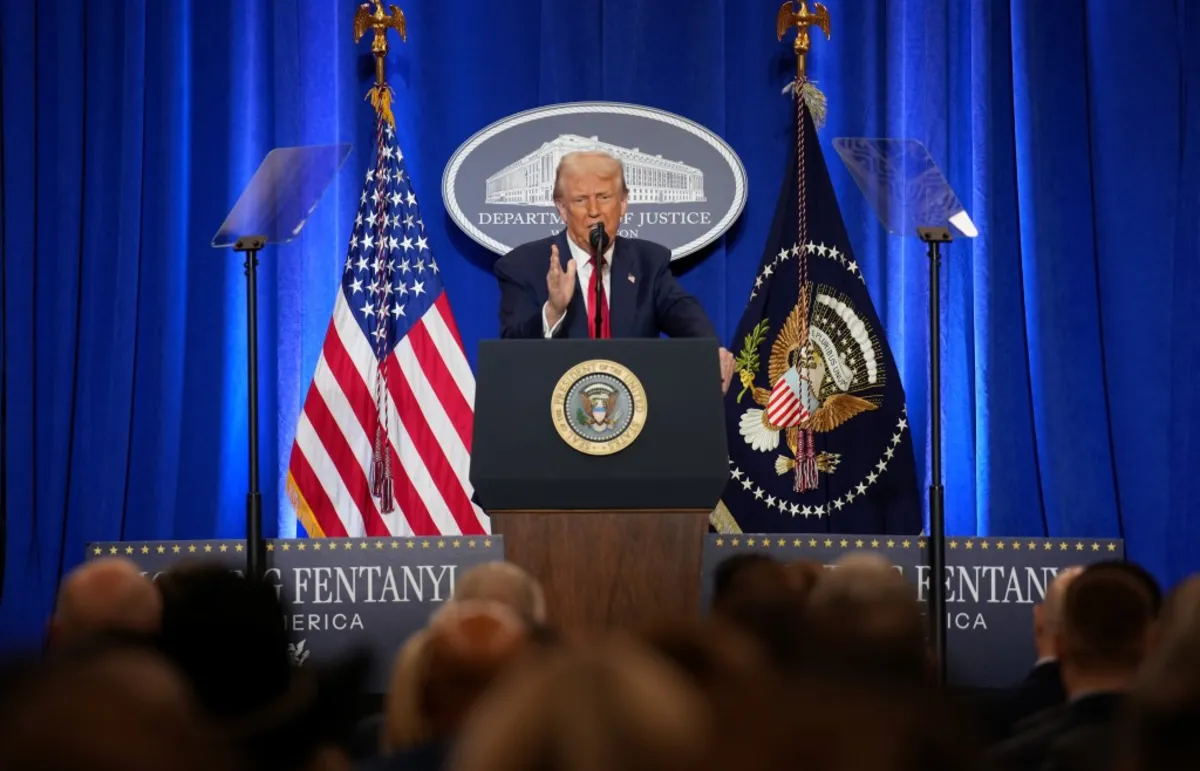
Former President Donald Trump has once again unleashed a scathing critique of the media, branding major news networks such as CNN and MSNBC as “corrupt” and “illegal” for their negative coverage of him. This latest tirade took place during a speech at the Justice Department, a departure from his typical rally settings, where he not only targeted media outlets but also launched attacks against his political adversaries.
In his address, Trump asserted, “I believe that CNN and MSDNC, who literally write 97.6 percent bad about me, are political arms of the Democrat party, and in my opinion, they are really corrupt and they are illegal.” His use of the nickname for MSNBC reflects a long-standing narrative he has built against the mainstream media. Additionally, he broadened his criticism to encompass other significant news organizations, including CBS, NBC, ABC, The New York Times, The Washington Post, and The Wall Street Journal.
Trump went further to claim that these mainstream media outlets are influencing judges and expressed his belief that such actions are “not legal.” This statement raises questions about the relationship between the media and the judiciary, especially in light of the protections afforded to media entities under the First Amendment.
Trump’s attacks on news outlets have become a defining feature of his political persona. During his administration, he took various measures aimed at diminishing the influence of the press. For instance, Brendan Carr, the chairman of the FCC, initiated inquiries into CBS for its editing of a 60 Minutes interview with Kamala Harris and scrutinized Comcast regarding its diversity, equity, and inclusion policies.
Moreover, Trump's White House implemented restrictions that curtailed the Associated Press's access to significant events, including those in the Oval Office. This decision stemmed from the organization's refusal to amend its Stylebook guidance, which refers to the Gulf of Mexico as the Gulf of America. Such actions exemplify the administration's attempt to control the narrative and limit press freedom.
Additionally, the Trump administration took over the management of the press pool—composed of a select group of reporters granted access to limited-capacity events—previously coordinated by the White House Correspondents’ Association, a non-profit run by journalists for decades.
In a recent development, Kari Lake, a senior advisor to the U.S. Agency for Global Media (USAGM), announced her decision to cancel newswire contracts with organizations such as the Associated Press, Reuters, and Agence France-Presse. Lake expressed her views on social media platform X, stating, “USAGM is an American taxpayer-funded News Organization with an 83-year history. We should not be paying outside news companies to tell us what the news is—with nearly a billion-dollar budget, we should be producing news ourselves.”
Lake's remarks underscore a broader strategy of undermining mainstream media, which she has consistently criticized during her political campaigns for governor and U.S. Senate in Arizona. This ongoing rhetoric against the media signals a continued alignment between Trump and his allies in challenging the narratives presented by traditional news outlets.
As Donald Trump continues to lash out at the media, the implications for freedom of the press and the relationship between journalism and politics remain critical. His administration's tactics, coupled with recent actions by figures like Kari Lake, highlight the evolving landscape of media relations in the United States.